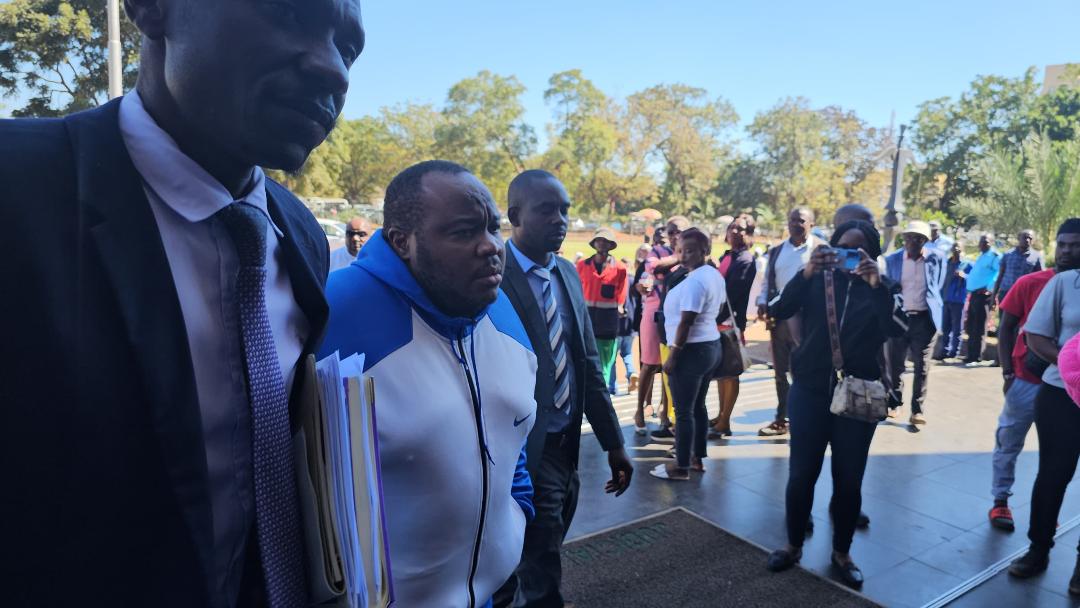HARARE – Zanu PF spokesman Chris Mutsvangwa on Sunday appeared to blame Vice President Constantino Chiwenga for his son’s arrest last Thursday on allegations of money laundering and illegal dealing in cash.
In an extraordinary attack in which he also questioned the retired general’s war credentials, Mutsvangwa maintained 44-year-old Neville Mutsvangwa’s innocence, claiming that his arrest was the work of adversaries who were “trying to abuse the judiciary system, hoping that I can have an attitude against the state.”
Last week, Mutsvangwa’s wife, the women’s affairs minister Monica Mutsvangwa, claimed her son’s arrest was “political victimisation.”
Mutsvangwa did not name Chiwenga in the interview with The Standard, but left enough clues about the target of his attack.
He claimed that he had “established beyond any doubt” that Mnangagwa had not instigated the arrest, “so it is somebody else who thinks that he is wearing the shoes of the head of state to manipulate the relationship between me and the president.”
“You know, the gate to power according to the constitution is through an election, not through games and shenanigans and subterfuge… I don’t answer to ambitious individuals,” Mutsvangwa said, referring to Chiwenga’s reported ambitions to be Zanu PF and the country’s next leader when Mnangagwa’s second and final term ends in 2028.
Mutsvangwa appeared at pains to portray his relationship with Mnangagwa as close – even after the president sacked him from his cabinet in February for insubordination when he refused to relinquish his role as chairman of the war veterans association. Mnangagwa had given him a choice between being a minister for veterans, or leading the association. He insisted on being both.
To buttress his claims of loyalty to Mnangagwa over many years, he said he was one of Mnangagwa’s “pioneer recruits to his office of personal assistant” at the age of 22 in 1978, a year after Mnangagwa – who had spent time in Tanzania – returned to Mozambique where the liberation movement ZANLA had set up its war headquarters.
While Mnangagwa returned to Mozambique in 1977, Mutsvangwa made the point that Chiwenga arrived from Tanzania in 1978, “a year before we won, a year before victory.”
“Remember the war was in Mozambique and not in Tanzania,” Mutsvangwa said.
Zimbabwe’s guerilla war with white occupiers was brief, say historians, as it intensified from the end of 1977 to 1979 when the white settler government in the then Southern Rhodesia agreed to black majority rule at a conference in the United Kingdom. The war effort mainly involved sabotage activities on infrastructure and sporadic attacks on white farmers.
“I was already working with the president,” Mutsvangwa told The Standard. “I think that proximity to him, my proximity to the president, they think through their post-independence proximity to the president they can influence him against me, or me against him.
“It’s an impossibly long shot for the power ambitious to ever think they can drive a wedge into such a long, strong and revolutionary acquaintance between me and the president.
“Persecuting my son as a carrot and stick to that nefarious enterprise will never yield the much-craved outcome.”
Neville Mutsvangwa appeared before a Harare magistrate on Friday and was remanded to Monday for his bail hearing.
The case will be a test for the country’s judiciary, which has so far denied bail to over 100 people arrested on charges of illegal dealing in currency as the government attempts to shore up its new currency, the ZiG.
















